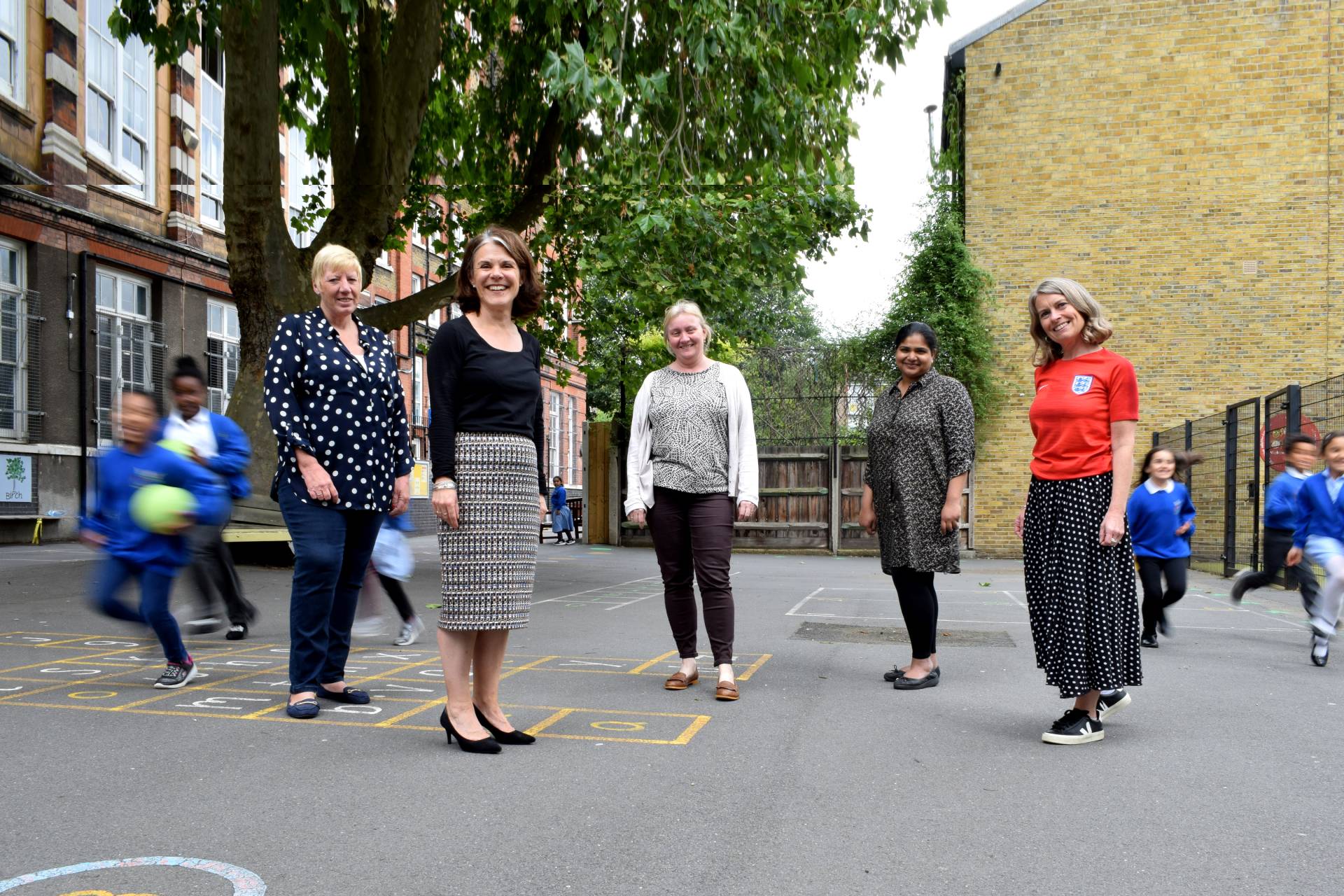Switching to remote learning, helping families access internet and often, food – schools have faced unprecedented challenges since the COVID-19 pandemic began. Rhyl Community Primary School in Kentish Town/Gospel Oak was nominated for recognition by a parent for being ‘positive but also realistic’ about some of these challenges.
We spoke with Headteacher Helen Connor about the various ways in which the school has supported pupils and their families during the last 18 months.

What has been Rhyl Community Primary School’s role in the pandemic and what inspired you to get involved?
We had little notice of the closure of schools, two weeks before the Easter holidays. Within those first few weeks, our school’s role changed completely. Our immediate priority was how we were going to carry on with teaching remotely, so we loaned out all our school devices and then looked at how we could get hold of more. This included receiving laptops through Camden Council’s Digital Divide campaign. We also provided pupils with other resources they needed to learn, from stationery to books to Play-Doh.
Many of our pupils are eligible for free school meals, but we quickly recognised there was also a need from parents losing jobs. We helped our families with food vouchers and delivered food to those who were anxious about going to supermarkets. We started welfare calls once or twice a week to check in on how families were doing and provide support. Some parents came to rely on those calls. Some had never been in a situation where they’ve needed support before. Because we have good relationships with our families, we were able to be their first point of contact and help make a difficult situation as bearable as possible.
We were more ready the second time the schools closed, as we had done the preparation the first time around, so had all our support in place within a few days.
“Because we have good relationships with our families, we were able to be their first point of contact and help make a difficult situation as bearable as possible.“
What challenges has the school faced?
As well as getting hold of devices for pupils in the first lockdown, we realised that many homes did not have access to Wi-Fi or it kept dropping out when multiple children and adults needed to use the internet. So we provided families with dongles to give them better access. We also realised that there were barriers in terms of knowledge, where families couldn’t afford laptops and the internet, they also often didn’t know how to use them, so we helped them to get up and running and confident at using the devices.
Another issue was children with additional needs having no access to outside space and climbing the walls at home. We opened up our playground space for booked slots for those children and their parents.
In the second lockdown, we had the further challenge of 22 children from families seeking asylum needing school places. We got these vulnerable children into our school straight away and have been supporting them since.
What’s your most memorable moment from your activities supporting Camden communities during the pandemic?
Visiting families to drop off food hampers was an eye-opening experience. They were so appreciative and grateful. Watching some children helping to bring in shopping (because their parents were not physically able to) demonstrated to me that life for many of our pupils is difficult.
What is the main thing you have learned since the pandemic began?
We have learned that we don’t realise how big a difference we make as a school. Our core purpose has always been to educate children to give them the best start in life. Moving forwards, we want to build on this and the role we can play at the centre of the community to support our families.
What are your hopes for the future?
As we come out of the crisis, we need to focus on children. There’s been an emphasis on academic catch-up and that’s crucial, we know that children from less privileged backgrounds are on average behind those with more advantages before they even arrive at school and the pandemic hasn’t helped this. A generation of children has massively missed out in academic and other ways because of the pandemic, and it’s further exposed inequalities.
We are looking at what we can do when children are in school to bridge the divide in digital literacy and cultural capital because we know that using the internet and going on trips gives children access to and understanding of the wider world they live in, which is important for building confidence as well as academic progress.
“We want to build on […] the role we can play at the centre of the community to support our families.”
What one change would make the greatest difference for Camden as we come out of the pandemic?
What would make the biggest difference for Camden overall is housing. Some of our families live in overcrowded and damp conditions, which can really impact on children’s development.
Is there an organisation or group you would like to see recognised for their support for people in Camden during the pandemic?
We’ve worked really closely with the Salvation Army in Chalk Farm, who have always been really supportive but came into their own during the pandemic. They’ve helped us provide toiletries and toy boxes to families, and phoned us up when they’ve had surplus meals that we’ve been able to distribute to our families. In the wider community, they’ve also done lots for homeless people.
